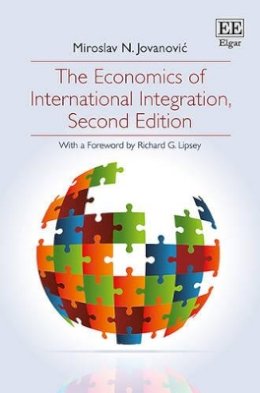
The Economics of International Integration, Second Edition
Miroslav N. Jovanovic
This book takes on those and other important new issues such as integration through spatially fragmented production, and the operation of supply chains. The author argues that international economic integration deals are here to stay, and evolve with variable successes in spite of advantages offered by the multilateral trading system. Jovanovi 's second edition includes up-to-date surveys of economic integration and their agreements, criticism of the eurozone and speculation on the future of integration.
This thoroughly revised second edition provides a broad understanding of international economic integration and its complexities, and will be of great interest to students and scholars of international economics, development economics, policy and international business.
Product Details
About Miroslav N. Jovanovic
Reviews for The Economics of International Integration, Second Edition
Richard Pomfret, University of Adelaide, Australia ‘A wide ranging, comprehensive but accessible and topical discussion of the many different dimensions of international economic interdependence and the instruments that governments around the world use to cooperate in the pursuit of greater integration of markets. Highly recommended for students seeking a non-technical treatment of the economics of international integration with extensive discussion of the European experience in moving towards economic and monetary union.’
Bernard Hoekman, European University Institute, Italy ‘Europe, the Americas, Asia and the Pacific, Africa, and the Middle East, within a region as well as across countries, have been integrating not only by FTAs but also by the development of global supply chains. However, we don’t know much about how the integration is really going and what consequences will be brought about by it. This book provides us with theoretical tools and empirical facts to understand it. Policy makers should read this book to implement good policy.’
Daisuke Hiratsuka, Institute of Developing Economies (IDE), JETRO, Japan ‘A very effective and up-to-date book for a deep understanding of the complex labyrinth of second-best solutions provided by the existing trading system.‘
Michele Fratianni, Indiana University, US
